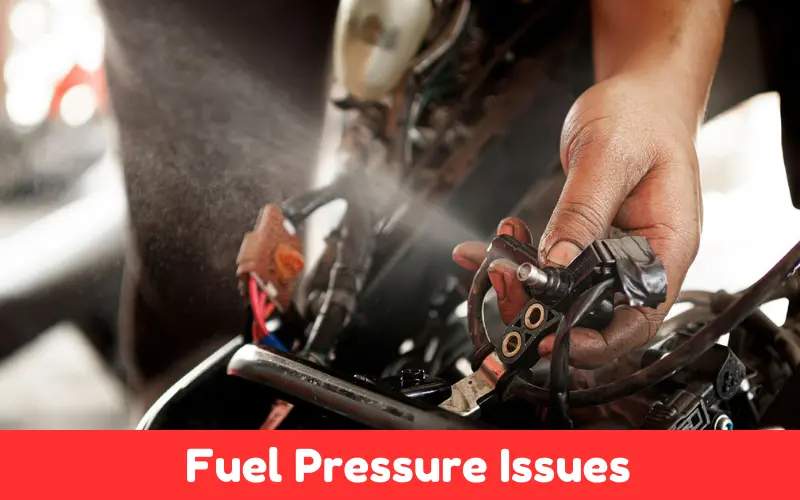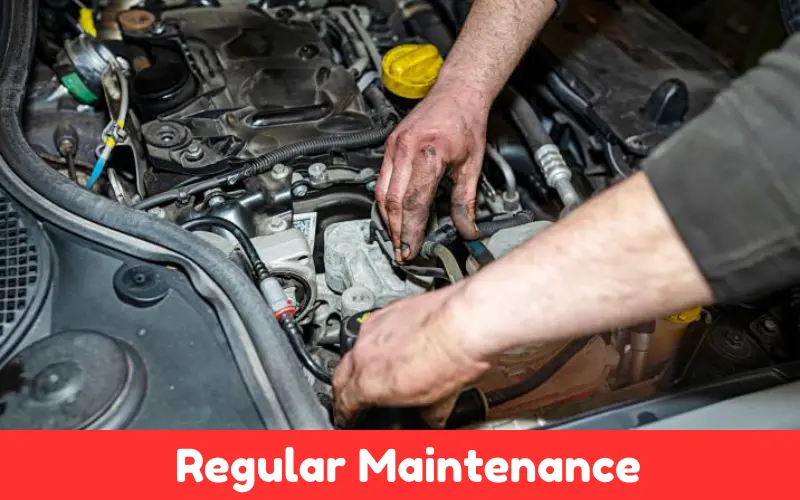Ford diesel engines are mostly consistent in performance. Power, Efficiency & Reliability of Ford Diesel Engines are vital parts of a Ford truck, especially on their diesel models.
As most complicated machine, Ford diesel engine fuel pump has some common problems. Ford diesel fuel pump problems can cause a variety of symptoms, from inconvenience to stranding.
These fuel pumps have proven to be problematic for hundreds ( and in some cases thousands) of Ford owners, causing major distress.
Article Summary
Ford Diesel Engine Models That Have Fuel Pump Problems
While Ford has built more than a half-dozen diesel trucks over the decades, certain brands and even models are more likely to experience fuel pump woes. So far, several models (but not ours) have reported fuel pump issues:
Ford F-250 and 350 Super Duty (2011 to present): These trucks, outfitted with the 6.7-liter Power Stroke diesel engine, have also had issues with a failing fuel pump.
Ford F-150 (2018-present): In this list, even some new models with the 3.0L Power Stroke diesel engine have been found to goof fuel up their pumps.
Ford Transit (2015-present): Vans with the 3.2L Power Stroke diesel engine also have issues.
Fuel pump failures are more common in these models, especially those with high mileage or that are heavily used.
How To Identify Ford Diesel Fuel Pump Problems?
Determining if a fuel pump is broken will prevent you from surprise breakdowns and expensive repairs. Here are some warning signs:
Hard Starting: One of the very first symptoms a defective fuel pump will produce is difficulty starting.
Loss of Power: A noticeable loss of power, especially under load and while accelerating, may be a sign that your fuel pump is failing.
Engine Misfires: If the engine misfires at high RPMs or while idling, it could be related to your fuel pump.
Check Engine light: If the service engine or check engine lights come on, accompanying any of the symptoms above, act quickly and have an exhaust leak inspected.
Strange Sounds: Any whining or humming sounds coming from near the fuel tank are likely a sign that your winding-down pump is about to retire.
This is why, through regular maintenance and timely diagnosis, you can avoid severe damage from occurring in your vehicle for its constant reliability. Minor issues can sometimes be repaired, but if the fuel injector pump is severely damaged, replacing it is often the best option to ensure your vehicle’s performance and reliability.
Common Ford Diesel Truck Fuel Pump Problems

Identifying normal Ford diesel problems helps you to spot as well as avert them earlier. Common Ford diesel truck problems are…
Fuel Contamination: Of course, the biggest risk from contaminated fuel is the potential to seriously destroy your vehicle’s fuel system, including its high-pressure components like injectors and HPFP.
Fuel Pump Wear and Tear: Inside the fuel pump, parts wear out over time, leading to poor performance or failure. This is particularly true for abused or high-mileage trucks.
Electrical Problems: Fuel pump failure, intermittent fuel, or no-start shutoff due to a bad wiring harness causing too much resistance in the system.
Fuel Pressure Issues: An erratic fuel pressure, most often caused by a failing pump, will translate to poor engine performance and increased fuel consumption.
Inadequate Fuel Supply: Fuel supply insufficiency occurs when the fuel pump supplying your engine simply cannot deliver enough juice for normal operations and increases power levels. This most often occurs when the fuel filter is clogged or when the pump goes bad.
Some of these problems can be avoided with routine maintenance, like changing the fuel filter and using quality diesel fuels. Also, if you know what to look for when it comes to symptoms and catch them early enough, this will prevent further damage from taking place, driving repair costs through the roof.
Ford Diesel Engine Fuel Pump Diagnosis
If you believe your Ford diesel truck has a fuel pump issue, getting the problem diagnosed as soon as possible is very important. Here are the steps involved:
Listen for Unusual Noises: A dwindling fuel pump typically whines or hums. If you hear sounds coming from the fuel tank area, it might be a problem.
Test Fuel Pressure: Check the fuel pressure by connecting a fuel pressure gauge to your car’s fuel system. This will be a low pressure, indicating the pump is going bad.
Check the Fuel Filter: A blocked fuel filter can be confused with a faulty pump. Check the filter: Inspect and replace it if necessary.
Test the Fuel Pump: If you have low fuel pressure and a clean filter, you or your suspect that the fuel pump may need testing/replacement. This will almost certainly require a professional diagnosis and repair.
Solutions for Ford Diesel Engine Fuel Pump Problems

But to avoid fuel pump problems, you need some of the following steps:-
Regular Maintenance: Routine maintenance, such as replacing the fuel filter and cleaning the fuel system, helps prevent fuel pump issues.
Use High-Quality Fuel: In high fuel conditions, clean and quality diesel is required; after quantity, this creates less chance of contamination and a year of life of the fuel pump.
Install a Fuel Additive: Many fuel additives are designed to clean the system and protect deposits from forming, which can greatly enhance overall performance.
Check Fuel System Components: Periodically inspect the vehicle’s fuel system, including the tank lines and filters, for damage.
FAQs on Ford Diesel Fuel Pump Problems
What Are The Symptoms Of A Failing Ford Diesel Fuel Pump?
Signs of a failing fuel pump in Ford diesel trucks include long cranking times to start the engine, lower horsepower/torque ratings, and sputtering at high speeds and while idling. These signs may indicate an issue with your vehicle’s fuel pump, which could also mean disgusting contamination of the Fuel System.
Which Ford models are affected by diesel fuel pump problems?
Most of the fuel pump issues have plagued Ford F-250 and F-350 Super Duty trucks with power-stroke diesel engines. Folks have all sorts of different reasons and ways that these can become a problem (wear and tear, fuel contamination, or manufacturing defect).
How To Prevent Fuel Pump Issues in Ford Diesel Truck?
Reducing fuel pump problems includes regularly scheduled maintenance, purchasing higher-quality diesel fuel, and adding a good Diesel Fuel Additive to keep the entire system clean. Additionally, monitoring the fuel tank and related components like lines and filters can contribute to detecting problems at an early stage.
How To Fix My Ford Diesel Engine Fuel pump Problem?
Note: If you think your fuel pump is starting to die, listen for noise from around the fuel tank and make sure to use a pressure gauge on the fuel line. Examine the fuel filter for blockage and replace it where necessary. If the above steps do not work, you will need to get your fuel pump professionally diagnosed and repaired by a proper mechanic.
Conclusion
Ford diesel fuel pump problems are a major concern for truck owners. Knowing which cars are affected, being able to recognize some of the symptoms, and familiarizing yourself with common issues will help you take proactive steps toward ensuring your vehicle continues performing well for years.
Suppose you follow the regular maintenance steps and look after potential problems as soon as they begin to surface.
In that case, it will certainly go a long way in maintaining your Ford diesel truck so that it continues to be a reliable workhorse throughout many years of challenging service.

